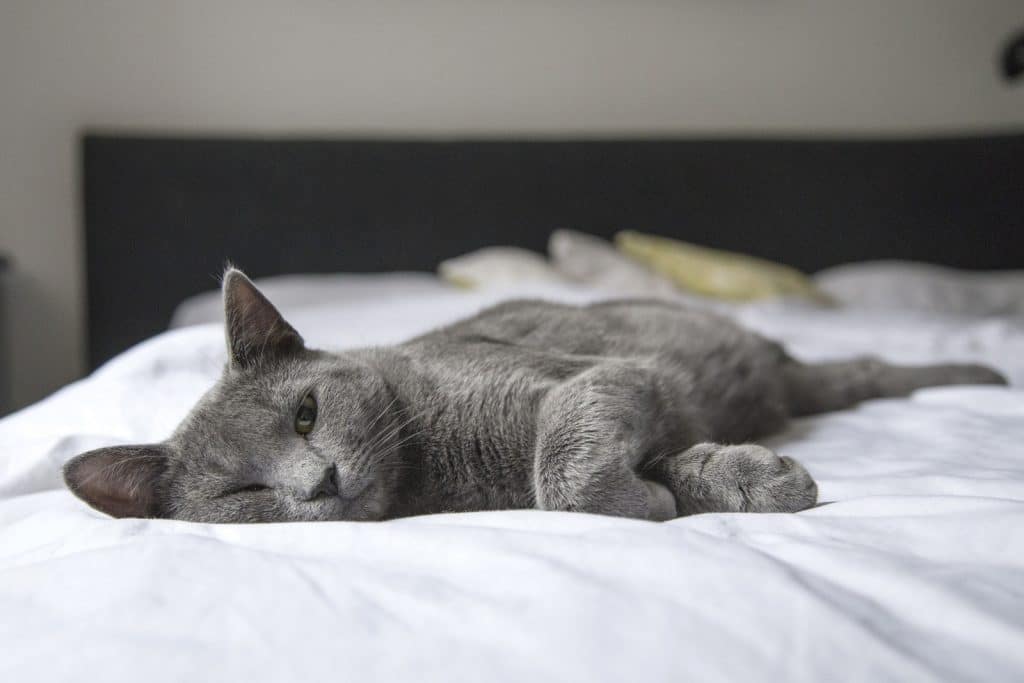
Loud Vocalization
Yowling can be a sign of:
- Senility in older cats
- A breed trait (like Siamese cats being more vocal)
- Boredom
- Daytime meows and howls could be a sign of pain
- Attention seeking behavior
.
Ways you can help this behavior:
- Visit your vet to rule out any medical or anxiety related concerns
- Invest in enrichment time and activities for your cat to eliminate boredom
- Change the way you react to the vocalization- sometimes it could be to make you react!
Scratching
Scratching can be a sign of:
- Marking a cats territory
- Not getting enough exercise/enrichment
Ways you can help this behavior:
- Redirect the behavior by providing scratching posts and toys- try sprinkling these items with cat nip to get them interested.
- Help your cat get enough exercise through play and enrichment activities.

Chewing
Chewing can be a sign of:
- Boredom
- Nutritional deficiency
- Teething in kittens
- Having been weaned too young
- Simply because it’s fun/the texture is nice
Ways you can help this behavior:
- Again, enrichment and exercise are the best ways to work through naughty behavior
- If combined with being underweight, please consult a veterinarian ASAP
- Provide safe and enjoyable alternatives to chew on to re-direct the behavior. Cardboard makes for a fun texture for our feline friends to chomp on!
Urinary Problems
Pee Problems can be a sign of:
- Infection
- Inflammation
- Bladder Stones
- Stress
- Tumors
- Conflicts between household pets
- Change in environment
Ways you can help this behavior:
- Visit your veterinarian to explore medical causes that are leading to this behavior. Most likely your cat is experiencing a health concern that should be addressed.
- Stress can cause urinary issues- medication can be a big help, stress reduction hormones like Feliway or removing stressors by confining cats to limited and safe spaces while navigating a new dynamic can help.
Litter Box Issues
Litter box issues can be a sign of:
- A health concern
- A texture or litter issues
- Fear of something around the litter box
- A change in environment
- An aversion to the type of litter you are using
- Foot pain
Ways you can help this behavior:
- Visit a vet to check for any medical concerns
- Ensure that the litter box is clean
- Add another litter box to your household and try a different style of litter. A good rule for # of litter boxes is # of cats + 1 box
- Try to remove any stressors inside the house that could be aiding in bathroom anxiety for your cat.
